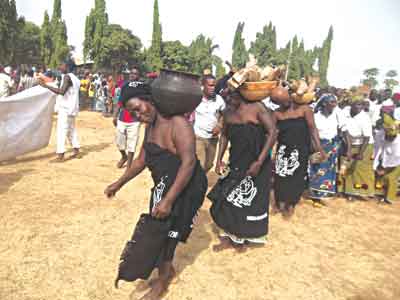Indigenes of the Federal Capital Territory have called on the Federal Government to treat them like every other Nigerian.
They made the call in Abuja yesterday through their traditional rulers at a national dialogue on rights of FCT original inhabitants, organised by Resource Centre for Human Rights and Education (CHRICED).
The theme of the event was ‘Building Resilience, Fostering Recovery: FCT Original Inhabitants and the Struggle for Justice’.
Held in collaboration with Cohort of FCT Original Inhabitant (OIs) Groups, with support from John D. And Catherine T. MacArthur Foundation, the event was part of the activities commemorating the United Nations International Day of World Indigenous Peoples coming up on August 9.
The monarchs wondered why it had been difficult for the Federal Government to appoint an FCT indigene as minister or upgrade Abuja to a status of a state to enable the people enjoy the rights and privileges associated with it like other Nigerians across states.
The Ona of Abaji and chairman of the FCT Council of Traditional Rulers, Alhaji Adamu Baba Yunusa, represented by the Galadima of Abaji, Mansur Mohammed Sule, urged government to be fair to all.
He said: “The donation of our ancestral land to government is remarkable for the unity of the people and the peaceful co-existence of the citizens but we are not seeing commensurate appreciation from the country.
“The people should do us justice to see we’re given our rights. We just want to be treated like any other Nigerian is treated. It’s high time our right was given to us.”
The Etsu of Kwali, Alhaji Shaban Audu, said:
“We’ve sacrificed a lot. Though we remain grateful to the government because certain things had been done, more needs to be done for the socio-political advancement of the people.”
Earlier, Executive Director, CHRICED, Ibrahim Zikirullahi, urged the government to address the plights of the natives to avoid breakdown of law and order in the FCT.
“The FCT indigenes made enormous sacrifices to provide space for Nigeria’s capital. Therefore, government can no longer ignore the voices of the original inhabitants. They’re landless, don’t have representative in the federal cabinet and of course even their children don’t have a place they can call their own. They’ve been suffering discrimination over time.
“We’re supporting them to reawaken their voice and put their issues before the government and international community. They’re going about their case lawfully and peacefully and perhaps maybe that’s why the government is not listening.
“We’re telling the government that is not only those that’re violent and unholy that it should discuss and negotiate with. It’s high time they listened to the original inhabitants.”
On her part, the Executive Director, Centre for Transparency Advocacy (CTA), Faith Nwadishi, urged political, economic and cultural rights of the original inhabitants.
She also said that the 1999 Constitution Review process that was carried out by the National Assembly would have been a golden opportunity for the 9th Assembly to edge their names in gold when the history of the FCT would be discussed and the right things are done.
Nwadishi said, “The FCT is known as a centre of unity. If we decide to leave the indigenous issues to only the indigenous people, we would not be doing justice to them. A lot of us have come from different places.
“I come from the Niger Delta, for instance, I am an Okpai woman, and I have my indigenous issues also, and that’s what compels me and gives me the zeal to push for the recognition of the rights of the indigenous people of the FCT because once you recognise the rights of the indigenous people of the FCT, you have set a precedent.
“The FCT, the geographical location we have the SEC today, is not the first place we have had as our national capital. As you are approaching Lagos, you have signs and will understand that this is significant to the people of Lagos State. But, in coming to Abuja at the city gate there is nothing that depicts the fact that there are people who own this land.”

 Join Daily Trust WhatsApp Community For Quick Access To News and Happenings Around You.
Join Daily Trust WhatsApp Community For Quick Access To News and Happenings Around You.


